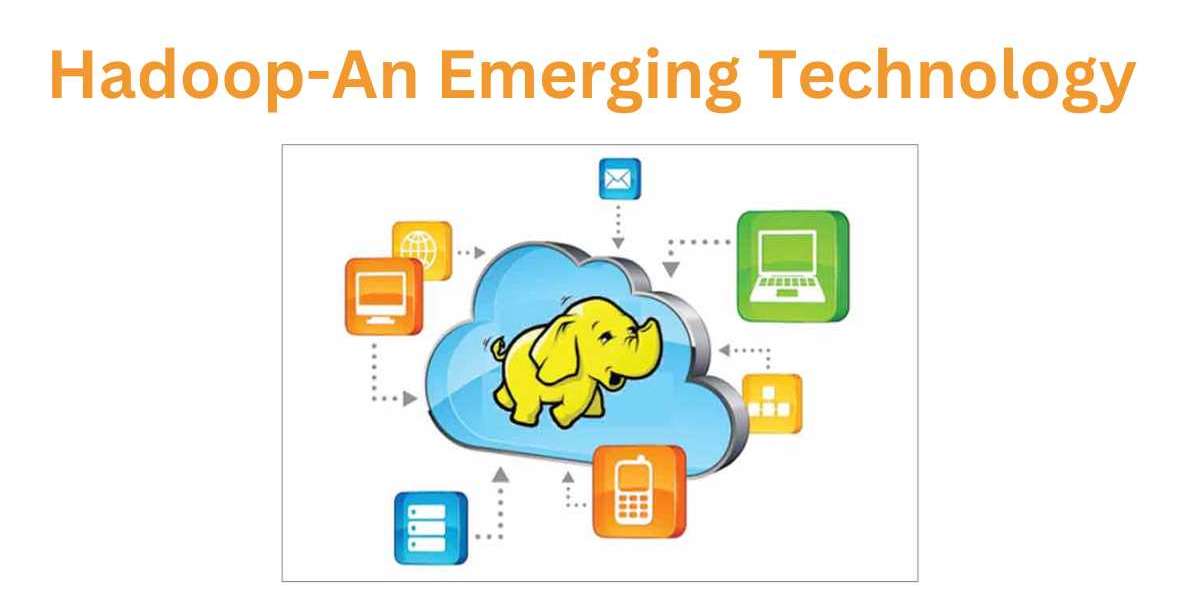Introduction
In today's digital world, data is one of the most valuable assets for any business. Businesses are turning to Hadoop, an emerging technology that enables them to store, process, and analyze large amounts of data efficiently and cost-effectively. In this blog post, we'll discuss what Hadoop is and the benefits of using it, as well as how it can be used for big data analytics. By the end of this post, you should have a good understanding of Hadoop and how it can help your business.
Understanding Apache Hadoop
Apache Hadoop is a groundbreaking technology that has transformed the realm of Big Data and analytics. This distributed computing platform offers the foundation for storing, processing, and analyzing vast amounts of data, and is now considered an essential component of modern big data solutions. Orien IT is the ideal learning platform for Hadoop Training in Hyderabad for those looking to gain expertise in Hadoop.
To grasp the full power of Apache Hadoop, it is crucial to comprehend its capabilities and inner workings. This section provides an overview of Big Data and Hadoop, including its benefits, components, programming languages, and cluster building options. We will also discuss the challenges and opportunities associated with this powerful technology, as well as explore some of the packaged solutions offered by commercial vendors that can help users get the most out of their Hadoop distributions.
At its core, Apache Hadoop is composed of four components: HDFS (Hadoop Distributed File System), which manages files across multiple nodes; Hadoop Common, which provides libraries for other modules; MapReduce, which enables distributed computing; and YARN (Yet Another Resource Negotiator), which manages resources across clusters in a distributed environment. The Apache ecosystem also includes other essential tools that must be mastered, such as Spark for high-speed data analysis, Hive for querying structured datasets, Pig for creating ad hoc queries on large datasets, Oozie for scheduling jobs on multiple machines or clusters in a timely manner, Sqoop for transferring bulk data between relational databases and HDFS or between different relational databases themselves, and Mahout machine learning algorithms that can be used with MapReduce or Spark programs.
To fully take advantage of all the benefits and features of Apache Hadoop, one must build their own cluster using commodity hardware or cloud infrastructure like Amazon Web Services (AWS). After setting up the cluster, users need to learn how to program with Java or Python to leverage all its capabilities, including distributed/parallel processing capabilities like MapReduce/Spark programs. Finally, access to packaged solutions from commercial vendors who specialize in providing installation and configuration assistance tailored specifically towards optimizing the setup and use cases while also keeping users up-to-date with new features and releases available within this ever-evolving space is crucial.
Mastering Apache Hadoop requires understanding its core components as well as the surrounding ecosystem, building a suitable cluster based on cloud infrastructure or commodity hardware, and keeping updated via packaged solutions and support from commercial vendors to successfully deploy and maximize its potential.
Benefits Of Using Hadoop
Hadoop is an emerging technology that offers a variety of benefits for businesses looking to take advantage of big data. This technology is quickly becoming the go-to solution for managing and analyzing large amounts of data. Hadoop can help organizations process large volumes of data with ease, while also providing cost savings due to its open-source software. It provides high availability and scalability, while automating complex tasks within the storage systems.
One key benefit of using Hadoop is its ability to process large volumes of data effectively; it allows users to store and analyze more information than ever before, both structured and unstructured, without sacrificing performance or reliability. Additionally, Hadoop can provide significant cost savings due to its open-source software, meaning organizations don’t have to pay hefty licensing fees for traditional databases or analysis tools.
Hadoop also offers improved performance when dealing with multiple data sources from different locations around the world or in different formats such as text files, images, audio files, etc., making it ideal for companies that need access to large amounts of disparate information quickly and reliably. Furthermore, it has the flexibility needed to store structured, semi-structured, and unstructured data, allowing companies greater insight into their operations than ever before possible with traditional SQL databases or other technologies such as MapReduce and Spark.
Finally, one major benefit offered by Hadoop is its reliability and fault tolerance. Its distributed computing model ensures that your data will not be lost in case a node fails, and processing continues uninterruptedly on other nodes within the cluster, making it perfect for mission-critical applications where failure isn’t an option. With features like role-based access control, encrypted communication, high performance and scalability, along with a low cost, secure environment and flexible schema-less architecture, Hadoop stands out in comparison with other big-data technologies. All these features make Hadoop an ideal choice for any organization looking to harness their big-data effectively while ensuring security, high availability, and scalability at a low cost.
Understanding Hadoop For Businesses And Industries
Hadoop is a game-changing open-source software platform managed by the Apache Software Foundation. It revolutionizes the management of large data sets, allowing organizations to store, process, and analyze big data in a cost-efficient manner. In this article, you will find information on Hadoop's architecture and components such as the Hadoop Distributed File System (HDFS), YARN, MapReduce, Hive Pig, and Spark. Setting up and configuring a Hadoop cluster requires efficient hardware and proper security measures. Once your cluster is ready, you can start leveraging Hadoop's technologies like Big Data Analytics, Machine Learning Algorithms and Real Time Stream Processing frameworks such as Apache Spark to make better decisions with your data. Understanding how Hadoop works can pave the way to efficiently build complex software platforms that utilize Big Data Analytics combined with Real-Time Stream Processing Frameworks and Machine Learning Algorithms to make our lives easier. Orien IT is the ideal learning platform for Hadoop Training in Hyderabad for those looking to gain expertise in Hadoop.
Hadoop And Big Data Analytics
The world of Big Data Analytics is changing rapidly, and Hadoop is an emerging technology that is gaining more attention every day. Hadoop, built on the principles of distributed computing, is an open-source framework for storing and processing large amounts of data. This scalability and flexibility make it a popular choice for tackling Big Data projects, from storing massive datasets to analyzing them quickly and accurately.
With Hadoop's components for storage, resource management, data calculation/processing, and real-time data pipelines, it has become increasingly important in industries such as healthcare, finance, retail, and media entertainment. Its scalability and cost-effectiveness make it ideal for businesses looking to analyze big data quickly while reducing costs. Moreover, Hadoop's open-source nature allows organizations to utilize various analytical tools within its framework, further enhancing its reliability when processing information quickly and accurately.
As the popularity of Big Data technology continues to grow steadily, with the market size of Big Data Analytics estimated to reach $105 billion by 2027, Hadoop stands out as one of the most reliable solutions for businesses seeking efficient solutions for their analytics operations in 2021 and beyond!
Conclusion
It can be assumed that after reading the mymeetbook article, you have a solid grasp of Hadoop. In conclusion, Hadoop is a powerful and cost-effective technology for managing and analyzing large volumes of data. It provides scalability, reliability, quick access to data from different sources and formats, cost savings due to open-source software, high availability, and fault tolerance. Furthermore, Hadoop offers an ever-growing ecosystem of tools and technologies that can help businesses get the most out of their data. By leveraging these features, businesses can make better decisions with their data and increase efficiency while reducing costs. To reap the full benefits of Hadoop, it is important to understand its architecture and components as well as the surrounding ecosystem, while also taking advantage of packaged solutions offered by commercial vendors that specialize in optimizing setup for use cases. Start exploring today how you can leverage Hadoop to empower your business!








